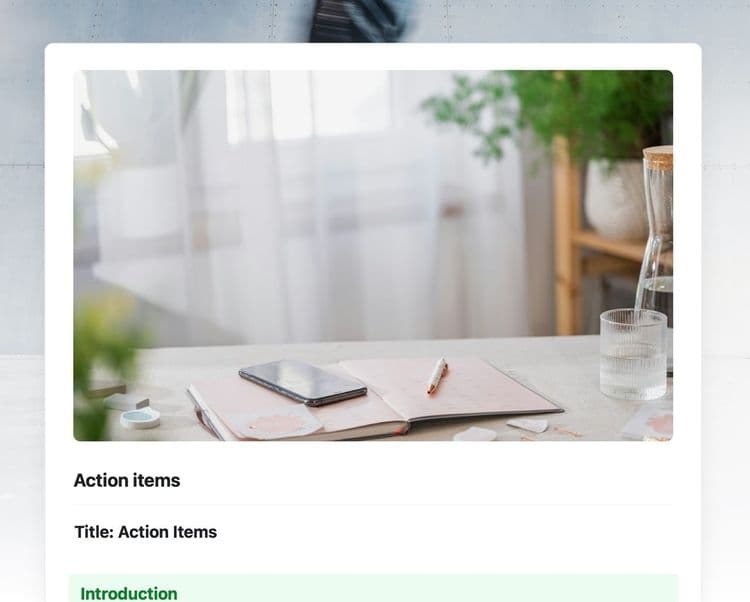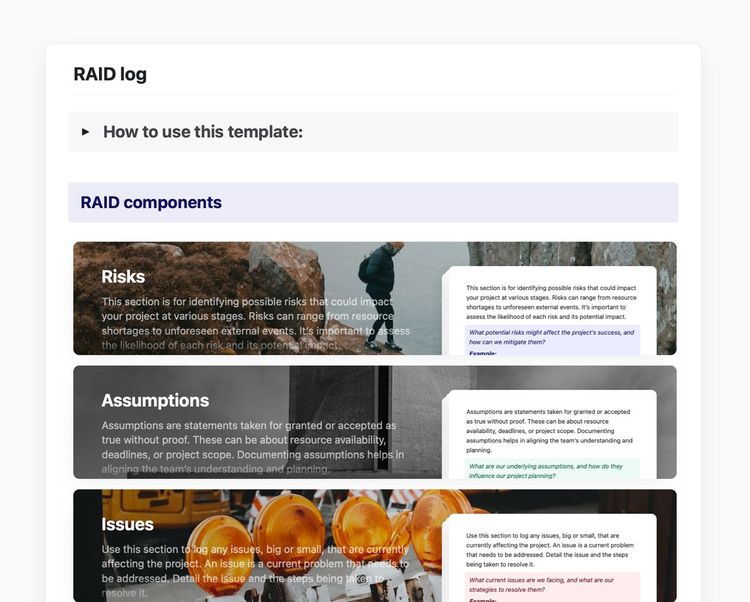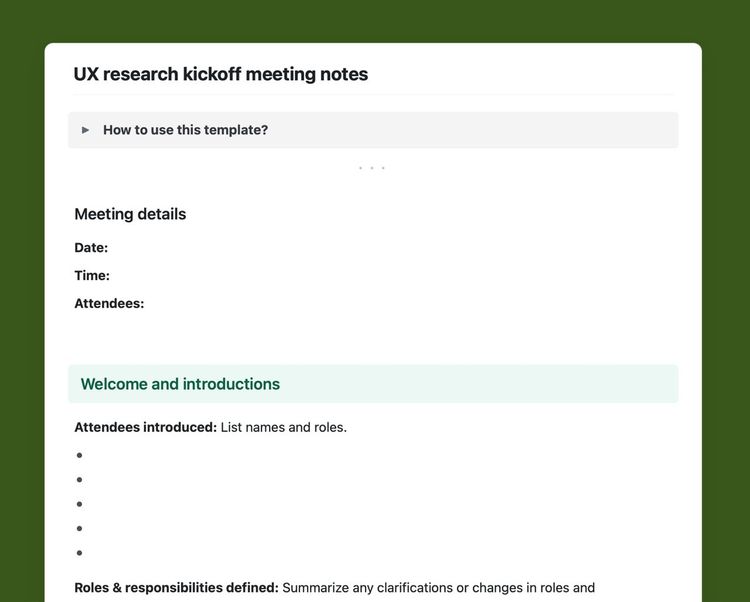What is a weekly one-on-one meeting?
A weekly one-on-one meeting is essential for effective communication and collaboration between team members and their managers. It's a dedicated time for individuals to come together, discuss their progress, share insights, and plan for the future. This meeting serves as a cornerstone for building strong working relationships within a team. Taking notes during these meetings helps make sure that valuable information and action items are documented for reference and follow-up.
Plan effective one-on-one meetings with this one-on-one agenda template.
Tips for writing good weekly one-on-one meeting notes
When it comes to taking notes during a weekly one-on-one meeting, there are a few key tips to keep in mind to make the process efficient and productive:
1. Prepare topics in advance: Before the meeting, take time to think about the topics that need to be discussed. This proactive approach allows you to have a clear agenda and be better prepared. When you have a plan in mind, you can focus on capturing the most relevant points during the meeting, making your notes more concise and specific.
2. Share talking points ahead of time: Consider sharing your planned talking points with the other participants before the meeting, and encourage your team member to add their own.. This collaborative approach fosters better preparation on both sides. When others know what to expect and what topics will be covered, they can come to the meeting with relevant insights and information. This not only makes you appear more confident and focused but also promotes a more productive and engaging discussion during the meeting.
3. Organize by sections: Maintaining a structured format helps keep your notes tidy. Following the template's designated sections makes it easier to categorize your notes as you write, and easier for readers to find specific information quickly.
4. Summarize action items: One of the most critical aspects of meeting notes is documenting action items. Clearly and explicitly state any tasks or action points that arise during the meeting. Include information about due dates and the individuals responsible for completing these tasks. This level of detail ensures that team members have a clear understanding of their responsibilities and timelines, making follow-ups more effective.
5. Emphasize key insights: Beyond routine updates, meeting notes should highlight key insights, feedback, or notable learnings from the discussion. This could include positive accomplishments, noteworthy challenges, or valuable feedback exchanged during the meeting. By emphasizing these insights, you provide context for future reference, helping the team to build on successes and address challenges effectively.
What's in this template?
- Personal wellbeing check-in: This section allows team members and managers to discuss mood, energy levels, and work-life balance, promoting a holistic understanding of the individual's well-being.
- Review of the past week: Capture accomplishments, challenges, and feedback from the previous week, providing a comprehensive review of performance.
- Planning: Collaboratively plan for the next phase of work, including priority tasks, required support, and potential roadblocks.
- Other topics: Provide an open floor for addressing any additional matters or topics that either party wishes to discuss during the meeting.
- Action items & next steps: Clearly outline action items, deadlines, and responsible parties to ensure accountability and progress tracking.
Give this template a go in your weekly one-on-one meetings to improve communication and collaboration between you and your team members. By following these guidelines and taking effective notes, you can enhance the quality of your meetings and ensure that important discussions and action items are documented for future reference.





